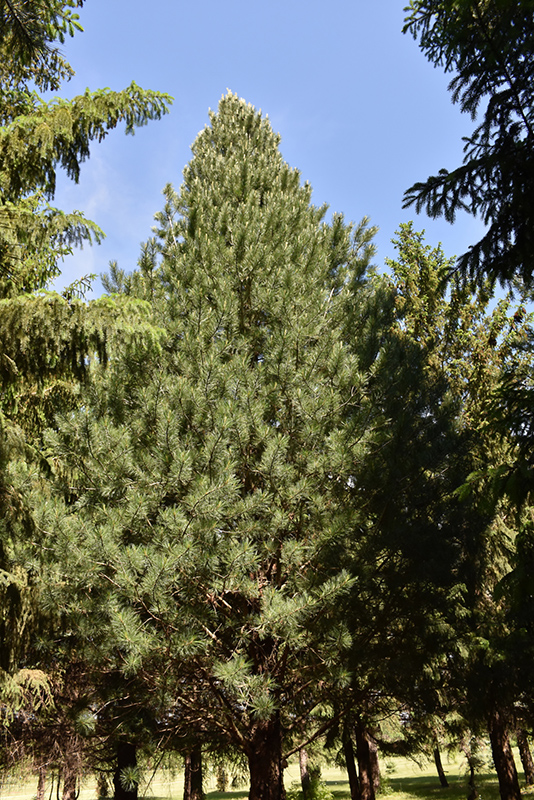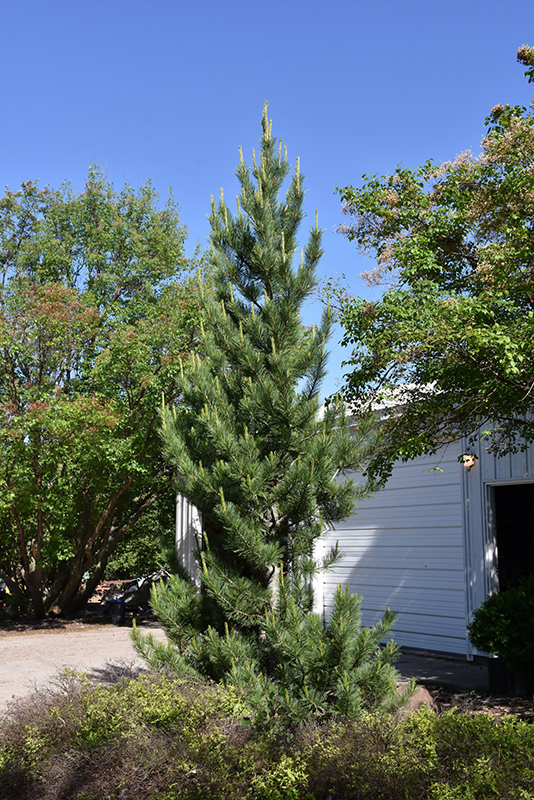>> Home
Prairie Statesman Swiss Stone Pine
Pinus cembra 'Herman'
Height: 30 feet
Spread: 15 feet
Sunlight:
![]()
Hardiness Zone: 2
Other Names: Arolla Pine
Description:
A tough yet stately evergreen with a dense, conical shape, upward and inward-curving branch tips add to the overall effect, emerald green needles have a pleasant bluish cast; this tree's beautiful form belies its unfailing toughness and durability
Ornamental Features
Prairie Statesman Swiss Stone Pine is primarily valued in the landscape for its distinctively pyramidal habit of growth. It has emerald green evergreen foliage. The needles remain emerald green throughout the winter.
Landscape Attributes
Prairie Statesman Swiss Stone Pine is a dense evergreen tree with a strong central leader and a distinctive and refined pyramidal form. Its relatively fine texture sets it apart from other landscape plants with less refined foliage.
This is a relatively low maintenance tree. When pruning is necessary, it is recommended to only trim back the new growth of the current season, other than to remove any dieback. It has no significant negative characteristics.
Prairie Statesman Swiss Stone Pine is recommended for the following landscape applications;
- Accent
- Vertical Accent
Planting & Growing
Prairie Statesman Swiss Stone Pine will grow to be about 30 feet tall at maturity, with a spread of 15 feet. It has a low canopy, and should not be planted underneath power lines. It grows at a slow rate, and under ideal conditions can be expected to live to a ripe old age of 120 years or more; think of this as a heritage tree for future generations!
This tree should only be grown in full sunlight. It prefers dry to average moisture levels with very well-drained soil, and will often die in standing water. It is considered to be drought-tolerant, and thus makes an ideal choice for xeriscaping or the moisture-conserving landscape. It is not particular as to soil type or pH. It is highly tolerant of urban pollution and will even thrive in inner city environments. This is a selected variety of a species not originally from North America.

